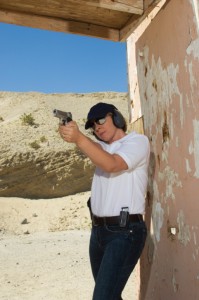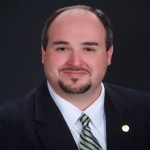This article is the first in a two-part series on departmental use of reserve officers. Read the second article on civil liability concerns.
By Christopher L. McFarlin, J.D., Faculty Member, Criminal Justice, American Military University & American Public University
Across the country, police departments continuously rely on units of reserve officers for a multitude of assignments. From the outset, they must treat reserve units like any other specialized team and realize they are an investment for the community. They are not for hobbyists or, even more dangerous, political favorites. The tremendous liability associated with the nature of police work–whether reserve or full time–calls for serious reflection from command staff and administrators.
[Related Article: Why Do Agencies Have Reserve Officers?]
For many years, the hiring of a reserve officer was the result of a political favor or a tactic to get fast and cheap supplemental manpower. Many agencies provide inadequate professional development and training for reserve officers. This can make using auxiliary personnel a recipe for disaster.
Historically, there has always been a divide between full-time officers and reserve officers. This is, in large part, due to the fact that full-time LEOs don’t see reserve officers as their equals. Therefore, agencies intending to continue or increase use of reserve officers must adapt their command and management structures, determine requirements of relevant state laws, and focus attention on integrating reserve officers into the wider department.
Once a department has ensured it has fiscal support and sufficient personnel to manage a reserve unit, the hard work begins. Sound infrastructural characteristics of a reserve unit include: (1) proper recruitment and selection criteria, (2) adequate training regimen, (3) continued professional development opportunities, and (4) fostering a healthy reserve culture.
Proper Recruitment and Selection Strategies
Many agencies suffer from improper or complete absence of any marketing of its reserve unit. Despite a societal decline in volunteering, there are still plenty of people looking for ways to give back to their communities. If marketed correctly, a reserve unit can be an excellent opportunity for citizens to bring their unique skill sets and experiences to policing.
However, the department must remain mindful that many people want to pursue law enforcement for the wrong reasons. Many misconceptions and myths about modern-day policing permeate society so it is important to examine a candidates’ motives and existing perceptions as well as their knowledge of policing.
Agencies must not take shortcuts in selecting reserve officers. A comprehensive process should be the same for the selection of reserve and full-time officers, including interviews, background investigations, polygraphs, home visits, and psychological and medical evaluations.
The Tulsa Police Department requires that all applicants for a full-time position must have completed a bachelor’s degree with a C+ average or better at an accredited college. TPD should be applauded for this step in advancement of professionalism within law enforcement. However, TPD doesn’t require the same standards in education for its reserve officers. If reserve officers are to be placed in the same situations as full-time officers and are to be required to use critical thinking skills and effectively communicate with diverse populations, their qualifications should be comparable.
Training Regimen and Reserve Training Officers
Agencies should ensure that proper training is instituted and required, in addition to the training required by state law. In many states, required reserve training is lower in quality and quantity when compared to the training required for full-time LEOs. Also, some states do not allow reserve officers to attend training simply because they are not full timers.
[Related Article: Finding Advantage in Reality-Based Training (RBT) for Law Enforcement]
Agencies must compensate for these discrepancies, for example by instituting a pre-service (in-house) training program before or in concurrence with the required state training. Some agencies have developed in-house academy programs, pooled resources with other agencies for local or regional training, and called on private industry. Additionally, all reserves should be required to complete the same field training program as required of full-time officers.

Additionally, it would promote professional development within the agency and allow more experienced and motivated reserves to rise to the top. From the trainee reserve officer’s standpoint, an RTO will create an enviorment where a reserve is not as afraid to make mistakes, ask questions, and seek guidance. An RTO could have much more success at conveying practical knowledge to fellow reserves.
An RTO could mirror the needs of a new reserve for the purposes of field training. Often times full-time officers are tied up on a special assignment or training new full-time officers and often do not have a schedule that is condusive to training reserves. Lastly, from a financial standpoint, RTO’s will not have to be compensated for their time spent training or paid overtime.
Professional Development
Each agency should make sure it impresses upon all reserve officers that being in law enforcement is not something to be taken lightly. Agencies should not only evaluate professional maturity in reserve applicants, but also seek to develop it in those selected for open positions. Even volunteers must devote themselves to professional development, which can include attending available training sessions, becoming a member of professional organizations, and taking courses provided by private companies.
Fostering a Healthy Reserve Culture
Unfortunately, reserve officers are often exposed to shunning, snobbery, or criticism at the hands of full-time officers. Some agencies make a substantial difference between reserves and full-time officers by the types of uniforms worn or labels affixed to the uniform or badges. This can create dangers for reserve officers should a citizen make the distinction. For example, if a habitual criminal makes this distinction, her or she may challenge or attack the reserve where that individual otherwise wouldn’t have. Alternatively, a citizen may challenge the legality of a reserve officer’s actions simply based on the fact that the officer is not a “regular” police officer. Also, making reserve officers stand out makes full-time officers more likely to judge a reserve on their status and not the individual’s actual abilities.
[Related Article: The Role of Local Police in the War Against Terrorism]
After stricter vetting and training protocols are put in place, reserve officers should be allowed to serve in the same capacities as full-time officers while on duty. Some agencies limit their reserve officers to being glorified ride alongs or armed event security. This is extremely damaging to departmental culture, as it can create a mentality of reserves not being as qualified or capable in even basic duties such as conducting traffic stops or answering calls for service. Agencies should also allow their reserve officers to serve on specialized units or have alternative assignments. For example, a physician may serve as a SWAT medic or a lawyer could assist with policy development.
Instituting a rank structure can help with motivating reserves if the obtainment of rank is predicated on education, experience, and professional development; the same criteria as typically required for full-time promotion. Lastly, if reserves are offered the same training as full timers and train alongside them, this will help to break down equality barriers and improve culture for reserve officers
Everything discussed thus far will help agencies ensure they have well trained, happy, and properly used reserve officers. Reserve officers will also be recognized, respected, and accepted by their full-time peers.

Comments are closed.